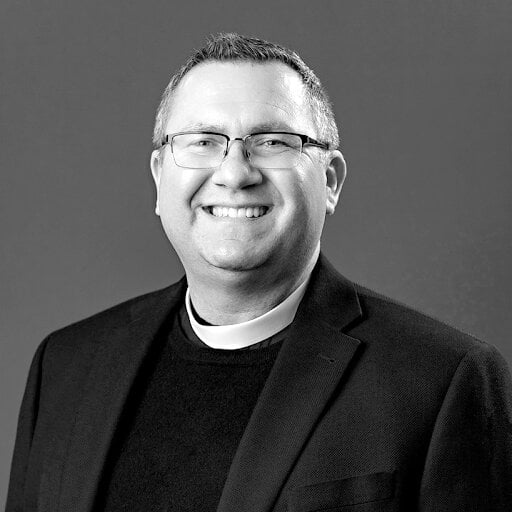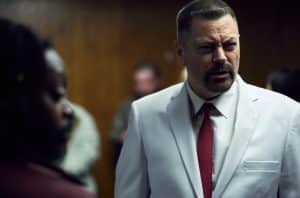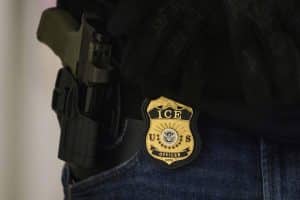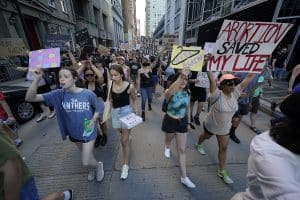Race Matters Spotlight features individuals in our community who wish to voice their opinions and perspectives regarding racial equity. By modeling how to discuss race in our society, our hope is that it will prompt us all to be more mindful and willing to have the necessary conversations regarding racism within our circles and peer groups, and normalize making those potentially awkward conversations more commonplace.
The Reverend Michael Ruk is the priest at St. Philip’s Episcopal Church, New Hope. Originally from Pittsburgh, he has lived in Bucks County the last 19 years serving churches in both lower and central Bucks. He also serves as dean of Bucks County’s 18 Episcopal Churches.
When and under what circumstances did you first become aware of the concept of race?
Growing up in a small, working-class town in western Pennsylvania, race was not even discussed because of being a predominantly white community. I first encountered the issue of race in college, as the institution struggled to maintain minority students in a semi-rural town. It was in college, I started to understand the academic side of race. It was only when I started working in a retail environment where I finally understood the reality of race through the lives of my coworkers. I saw the economic and social disparities caused by neighborhood divisions of the city.
When did you first become aware of Anti-Racism, and what does that term mean to you?
Like so many others it was through the work of Ibram X. Kendi. To me the term means to be an agent of change rather than a passive observer of the situation. In my Christian tradition, we talk of sins of commission (one of which we commit of our free will) and sins of omission (actions where we fail to act in a right manner). We all need to be careful not to fall into the sin of omission where we turn a blind eye to the injustices of the world, so we can live a more comfortable life. To be anti-racist means we need to put energy and effort into changing a broken world.
What examples of racism (overt or unintentional) have you witnessed here in Bucks County?
In the Summer of 2020 at the height of the Black Lives Matter protests, I was invited to a local gathering. When I arrived, there was not one Black or Brown individual. It deeply troubled me, to see this lack of presence. While the organizers’ intentions were good, there was a definite disconnect about the reality of living in central Bucks. Why were there no Black individuals present? A young person in attendance even took the microphone and posed this exact question to the crowd: who are we standing up for when we live in an area that has prevented (economically, culturally, however) those same people from being part of the community? That person was swiftly silenced and ushered back into the crowd. What hinders people from living in this area? Why do we see this lack of diversity as acceptable? It struck me that the issue of racism in Bucks is one of blindness and apathy to an injustice. We can quickly forget about the pain of others and the privileges we possess, simply because they can be so easily avoided.
What’s one thing we can do to help further the cause of racial equity locally?
We need to truly know our communities. It is so easy to turn a blind eye to the situations and sufferings of others simply because it is more comfortable to live in the safety of our own bubble. Get involved in your communities. Volunteer with those who are vulnerable and in need. The more we serve those who are in need the more we will understand our communities both in their strengths and weaknesses. Listen deeply to the lives of others and do not pretend to know the pain others carry.
What resources (books, movies, podcasts, etc.) on race and race relations have you found helpful in advancing your understanding on the topic?
I think books, movies, podcasts, and other media are the easy way out here. Too often we think “education” means sitting down and studying them; that can be the case, but when it comes to peoples’ lives, it is not enough. I have learned from books and movies and such, of course, but I have learned so much more about race relations through talking to people and hearing their own stories and struggles. In many ways, it is easier to pick up a book or listen to a podcast than to sit down and have your heart broken by the lives of a neighbor you did not know. I firmly believe our world would be in a much better place if we had the humility to sit and listen to others.






